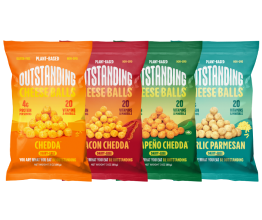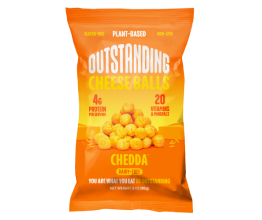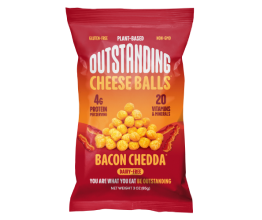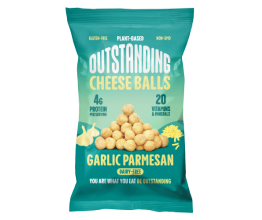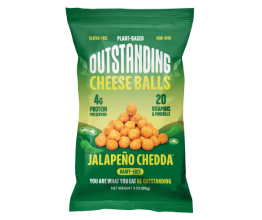All the Incredible Benefits of Sunflower Oil
There are some wonky ingredients out there, and many of us have tried some crazy stuff over the years to see if we can get any of the supposed benefits. They can come from unexpected places or familiar sources right under our noses!
In the case of sunflower oil, we’re dealing with a powerful, versatile ingredient that comes from the beloved sunflower seeds we’ve been munching and crunching for years. Or at least, whenever you’re at a ball field (or maybe never).
Sunflower oil is often overlooked compared to other cooking oils, but we think it deserves a closer look at all its nutritional qualities and unique physical properties. Seriously, these sunny yellow flowers can do more than just brighten up your latest photoshoot.
Today, we’re exploring the many incredible benefits of sunflower oil and will hopefully convince you to nab a couple of bottles for your own pantry! Let’s get started.
What is Sunflower Oil?
You might have seen sunflower oil on store shelves or seen it listed as an ingredient on your favorite healthy vegan snack food, but what exactly is sunflower oil, and how is it produced?
Here are the sunflower oil basics you should know.
The Sunflower Plant
It’s one of the most recognizable plants on the planet, appearing on Grannie’s wallpaper, the covers of children’s books, and rustic-inspired flip calendars. The sunflower is actually a member of the genus Helianthus, which includes over 70 unique species of annual and perennial flowering plants. Plus, it just has such a sunny personality that we can’t help but love it.
The circular yellow formation of petals, the spiraling fuzzy florets, and the towering stature of the sunflower (sometimes reaching 10 feet—and yes, we’re a little intimidated that a flower is taller than us) are the features that instantly separate this plant apart from the rest.
Sunflowers originated in the Americas and were first domesticated over 5000 years ago by Native Americans in need of a healthy source of fat. They aren’t particularly difficult to grow, making them an ideal crop that can be cultivated in almost any climate.
In fact, sunflowers are so robust and quick-growing that they sometimes get in the way of other plants in the field, such as potatoes and bean sprouts.
From the chilly northern regions of Wisconsin and upstate New York to the Texas plains and the swampy bogs of Florida, you can find sunflowers of all shapes and sizes – each with seeds that yield varying qualities of oil.
How It’s Made
The sunflower seeds themselves are made up of a tough protective outer shell, with a soft and tender kernel inside. Within the kernel is the majority of the nutritional value, so the beginning of the manufacturing process focuses on cleaning, screening, and de-hulling the seeds to obtain top-quality kernels for oil production. It’s kind of a lot of work.
With complex centrifugal machinery (spinning at rapid rates), the shells are separated and shaken out so that only the kernels remain. While some shells may remain in the mixture, they can also contain small amounts of oil.
Through grinding and heating at high temperatures, sunflower seeds are ready to be pressed so that oil is extracted in high quantities. When done properly, producers can yield up to 50% oil from the seed, using the leftover meal for other industrial or agricultural uses.
From there, additional oil is extracted using solvents like hydrocarbon and a distillation process that further refines the product. This step is key to creating a colorless, odorless oil with a neutral flavor suitable for cooking.
Sometimes, sunflower oil is mixed in with other vegetable oils to create generic cooking oil products, while other producers aim to produce 100% pure sunflower oil, giving consumers more transparency into what they’re buying. Stick to the good stuff, and you’ll be in the clear.
Consumption and Other Facts
We’re mainly interested in oil today, but sunflower seeds are, of course, very popular as snacks for humans and animals alike! More than 25% percent of sunflower seeds (typically the smallest varieties) are used in birdseed, while about 20% is for direct human consumption. Is it weird that we’re basically eating birdseed? Nah, we think it’s fine … probably.
If you’ve ever been to a ballgame or hung around a campfire with friends, you’ll know that chewing and spitting sunflower seeds is truly a national pastime, even if it looks … well, we’ll be honest, it looks gross.
While a huge portion of the value of a sunflower comes from the oil (about 80%), leftover meal and scraps can be used as animal feed, fertilizer, or other industrial applications. It’s like the circle of life, except it’s just this one flower.
Sunflower Oil Uses
Now that you know how sunflower oil is made and some other uses of the plant, let’s get into how this product is used and what makes it unique.
Fuel
On your next visit to the gas station, you can buy sunflower seeds at the counter, pick up a bag of snacks cooked with sunflower oil, and even fill up your tank with sunflower oil diesel fuel to complete the trifecta! Before you know it, every part of your life will be taken over by the sunflower.
Okay, maybe it’s not that simple, but sunflower seed oil is one of the more functional vegetable oil fuels that can be blended with conventional diesel or processed into biodiesel that keeps motors running across the world.
Supplements
We’ll get more into the nutritional benefits of sunflower seed oil in a minute, but for the time being, keep your eye out for sunflower oil supplements at your local health food shop. They are a great source of nutrition and healthy fats.
Cooking
Now for the good stuff. Sunflower oil has a huge range of marvelous culinary applications, known as a versatile cooking oil that can be used for frying, sautéing, baking, dressings, marinades, and more.
The big advantage of sunflower oil is its relatively high smoke point – around 440 degrees Fahrenheit – allowing cooks to lean into some high heats and create incredible layers of flavor in the pan, wok, or oven.
Only a handful of other vegetable oils have higher smoke points, including soybean, corn, canola, and peanut oil. However, the smoke points are not drastically higher, and these cheaper oil types also come with several health concerns that make sunflower oil the better overall pick. Sunflower oil brings up fewer concerns about allergies, which is a major plus for those who have to stick to specific diets.
Sunflower oil might be a bit pricier compared to other vegetable oils on the shelf, but believe us when we say it’s a healthier, tastier, and far higher quality in every respect. Besides, it’s 100% flavor neutral, meaning your dishes will not take on unwanted tastes through cooking.
When browsing the store for snacks or other prepared foods, always keep an eye out for sunflower oil on the ingredients list – that’s a promising sign you’ve made the right call!
Health Benefits of Sunflower Oil
Okay, cooking, fuel, blah blah blah. What about those benefits that we were promised?
Nutrition and Vitamins
As a pure fat, sunflower oil has no protein, no carbs, and is an incredibly dense source of energy. Just one ounce of sunflower oil contains several hundred calories, so watch out! Maybe don’t grab a bottle and start guzzling the stuff (no judgement, though).
The big advantage of sunflower oil, however, is the type of fats found within. Most importantly, sunflower oil is a quality source of polyunsaturated fats, also known as PUFAs, which are widely considered the healthiest type of fat for human consumption.
Sunflower seeds also include an abundance of oleic and linoleic acid, which are crucial to so many essential functions of the body. These essential oils help boost cognition, brain function, memory, promote healthy skin, hair, and nails, and even amplify the immune system to fight off invaders and diseases from the body.
In terms of heart health and balanced cholesterol levels, sunflower oil is in a league of its own compared to other vegetable oils. This is why we refer to oleic and linoleic acids as healthy fats and aim to include more of them in our diet.
In addition to quality fats, sunflower oil contains high concentrations of Vitamins K and E, which promote hundreds of important functions within the body as well.
Vitamin E is a powerful antioxidant, while Vitamin K helps regulate blood health, bone metabolism, calcium levels, and overall skeletal strength. It’s almost enough to make you want to deep-fry everything that you’re eating in sunflower oil—but maybe don’t do that.
Sunflower Oil Snack Foods – Our Favorites
When you’re on the hunt for a satisfying snack, you probably aren’t looking for sunflower oil as the make-or-break ingredient.
However, we encourage you to get more familiar with what’s really going into your snack foods, especially with the rise of less-than-healthy vegetable oils like corn, soybean, canola, and others.
Snacks with sunflower oil are simply a cut above the rest, offering a big burst of nutrition and that signature “snap” that makes crunchy snacks so great.
Those are the reasons why we use top-quality, high-oleic expeller pressed sunflower oil in all of our snacks here at Outstanding Foods.
From our Outstanding Puffs to our PigOut Pigless Pork Rinds, sunflower oil holds everything together and adds an impressive amount of healthy fat to each serving.
No weird additives, no unwanted preservatives – just wholesome, delicious snacks that everyone can enjoy, whether in a group or alone in your room in the middle of the night. We don’t care either way!
Sources:
Sunflower Seeds and Oil | Colorado State
